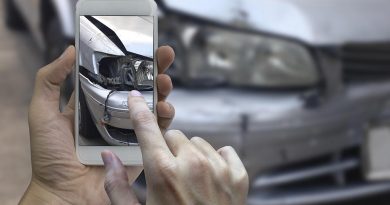When to Claim Car Insurance and When to Skip
Think of car insurance as your safety net for life’s unexpected bumps (literally). Dealing with a scratched door or significant damage from an accident? Understanding when to file a car insurance claim and when it might be more practical to handle minor issues independently can help you manage your policy effectively.
In this guide, you’ll get practical examples and post-accident tips, so you can make your decision confidently.
Reporting Every Incident is a Must (Even the Little Ones!)
Even if you decide not to file a claim, informing your insurer about the incident can be beneficial. It creates an official record of the event, which can be useful if other issues arise later.
When to Claim
There’s a reason why you got car insurance in the first place. Sometimes, you just have to let your insurer step in and help. Let’s take a look at when claiming is the way to go.
1. Big-Time Damage to Your Car
If the repair costs exceed your excess amount or are unaffordable, consider filing a claim. Comprehensive car insurance is there to take the financial sting out of these moments, so make use of it.
2. Injuries or Third-Party Damage
When other drivers, passengers, or pedestrians are involved, you probably want to file a claim. Your third-party liability cover is there to handle the costs so everyone can get the help they need without putting strain on your wallet.
3. Car Theft or Total Write-Off
If your car is stolen or written off, you’ll be glad you have insurance to fall back on. Contact your insurance company straight away to start the claims process. Remember to have the required documents, like the police report and proof of ownership, on hand.
4. When You’re Up Against Uninsured Drivers
Dealing with an uninsured driver can feel like adding insult to injury. Thankfully, comprehensive cover has your back in these situations, saving you from having to pay out of pocket for someone else’s mistake.
When to Skip
Not every little bump needs to turn into an insurance claim. Here’s when it might be smarter (and easier) to handle things on your own.
1. Small Repairs Below Your Excess
If the repairs cost less than your excess, paying out of pocket might be better. It is important to still file a claim, as not doing so might impact your insurance.
2. Minor Mishaps (That You Can Fix Without Drama)
Sometimes, it’s just easier to sort out a small dent or scratch on your own – especially if it was someone else’s fault and the cost isn’t too high. However, please note that you should only use your insurer’s approved repairers to ensure you get the best results.
The Perks of a Claim-Free Record
Did you know insurers often reward drivers who don’t make frequent claims? Think lower premiums and other perks. This is to reward those who drive responsibly. But don’t let this stop you from filing a claim – it’s important for your insurance to know about all incidents big and small.
What To Do Immediately After a Car Accident
No matter how big or small the incident is, there are a few must-dos after any car accident. Think of this as your post-accident checklist.
1. Put Safety First
Check for injuries and get everyone to a safe spot. Pro tip: Use your hazard lights or warning triangles to stay visible.
2. Exchange Details
Exchange contact information with the other drivers, witnesses, and anyone else involved. Avoid admitting fault or making unnecessary statements at the scene.
3. File a Police Report
Report the incident to the police within 24 hours. This is especially important if there’s serious damage or injury.
4. Call Your Insurer
Let your insurer know right away and share details like photos, the police report, and any additional information you have. This is important even if you don’t file a claim.
5. Stay Organised
Remember to keep copies of your policy, repair quotes, and any communication with your insurer. Keep it on hand throughout the claims process to make things easier. Also, check that the contact details on your policy are up to date so your insurer can reach you.
Why Claims Sometimes Get Rejected (And How to Avoid It)
Claims might be denied if you fail to share important details or give incorrect information. Other reasons include missed premiums, using your car for things not covered by your policy, driving under the influence, or missing the deadline to file a car insurance claim. So, be sure to avoid these pitfalls, and you’ll have a smoother claims process.
To Claim or to Skip?
Knowing when to claim car insurance and when to skip can help you save money and get the most out of your policy. Just remember to always put safety first, report incidents on time, and assess each situation carefully.
Comprehensive car insurance can be a lifesaver in South Africa. For comprehensive insurance plans, affordable premiums, and an easy claims process, get a quote here. Whether it’s a big claim or a small bump, you’re sure to be back on the road swiftly.

Disclaimer:
The article aims to provide South African motorists with information they might need to decide whether to file an insurance claim or not. Always do your own independent research.
Get a quote for affordable Comprehensive car insurance with fixed premiums*, reducing excess*, and top-tier service. T&Cs apply.
Please get professional financial advice from a certified financial advisor to ensure you select the appropriate financial services product.




